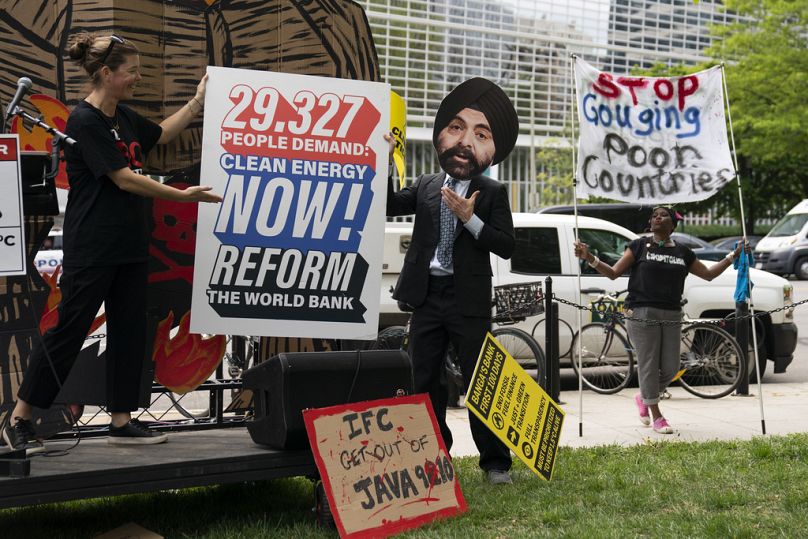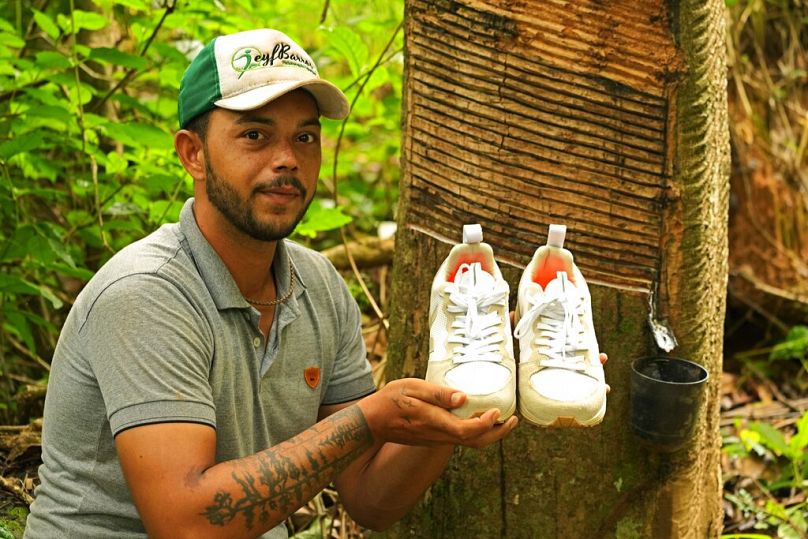Consumers' increased expectations of business leaders and brands to behave in a sustainable and circular way are not going to go away. All the research points to the urgency of action, Dr Rodney Collins writes.
In March, the Intergovernmental Panel on Climate Change (IPCC) released the fourth and final instalment of its research into the climate crisis, summarising future actions that must be taken to halt the advance of the climate breakdown.
One of its starkest warnings is that future human life will depend on actions taken in the next seven years.
The report will underpin the conversation at COP28, taking place at the end of this year. Much of it has already been reviewed by the UN’s 200 participating nations, and it’s fair to say that the crux of the debate thus far has been had at a governmental level.
But with urgency critical, we can’t rely on governments alone to move quickly enough. Another key assessment of the report is that the “global economic benefit of limiting global warming to 2 degrees, exceeds the cost of mitigation in most of the assessed literature.”
In other ways, it pays to keep the planet alive — and the systems in which we’re operating today may not be up to the job.
Brand imperative — act now, or lose out long-term
It’s not just the IPCC saying this, either. Customers, the people businesses are most likely to take heed of, are saying this too. In fact, they are shouting it.
Recent research conducted by our intelligence unit at McCann Worldgroup, Truth Central, found that 90% of the public believe that business leaders should be as accountable to the public as political leaders, and three out of four Europeans expect brands to play a greater role in solving societal problems.
Climate change is in the foreground of these problems, and concern is only accelerating.
Since 2018, our research has shown that climate change has trumped terrorism as the main worry on Europeans’ minds.
It’s clear that there is a clamouring for business action — and that there is a critical window in which business leaders can lead by example to create a more sustainable landscape for us all.
As the IPCC has flagged, however, there is a great economic benefit available for those who act.
Businesses now have to walk the walk
In the first instance, there is the soft power that is afforded to brands who are seen to step outside their lane to serve a positive function for a wider community than their customer base.
Whilst this has, to a certain extent, always been true, the global pandemic acted to cement this as a requirement as opposed to a ‘nice-to-have’ for businesses across the world.
Businesses like L’Oréal, which directed its perfume and cologne manufacturing capabilities towards producing disinfectants, responded intelligently to public sentiment.
This expectation for brands to lead by example, stepping forward in areas that aren’t directly within their business remit, has accelerated in Europe in the last five years.
This is particularly true when it comes to sustainability. "Sustainable living" is the single most significant area people in Europe wish they could have more guidance on — ahead of managing finances, nutrition, or parenting.
As more legislation is formulated to combat ‘claims-washing’ — the EU’s Green Claims Directive most recently — businesses should lean into the desire of consumers and offer practical tools to support more sustainable lifestyles, not just drive product sales with assertions.
Circularity will make the world go 'round
Not only is there soft power of consumer esteem for brands that tangibly tackle the crisis but there’s also purchasing intent behind a more sustainable commercial framework: circularity.
A significant 81% of Europeans believe that the future of business in Europe will require a circular economy, whilst three-quarters of Brits believe that “we should share more and buy or own less”, on par with the wider regional average.
Circularity is also one of the ways in which Europeans believe the region will be a global leader in the next five years.
Meeting this expectation will require evolving large-scale systems. Brands are already beginning to meaningfully experiment in this space — Freda and eBay amongst them.
eBay’s Love Island partnership in the UK sought to fundamentally shift our perceptions of what it means to have "fast fashion", whilst Freda’s natural and organic period and bladder care products break from the traditional manufacturing process used by large-scale competitors.
Both brands have centred circularity on reconstructing the supply chain model and altering the role of manufacturing within it.
Other brands looking to emulate this and similarly meet consumers’ desires for sustainability and circularity may have to get comfortable with uncomfortable outcomes in the short term.
Reconfiguring established systems undeniably means hard choices and may require facing challenges in the near term.
To weather those challenges will require a consistent focus on the long-term vision and ideating in a way which requires radical creativity.
Nothing will change if we don’t give ourselves the freedom to think beyond the structures business operates in today and commit to the radical solutions that will help us get there.
Partnerships unlock profit
That doesn’t have to mean going it alone either; 84% of business leaders believe that we should be focusing on cooperation rather than driving profit, so it’s likely there’s a partnership out there just waiting to be leveraged.
Critically, these increased expectations of business leaders and brands are not going away — all the research points to the urgency of action.
Responding will require bravery and a deep understanding of your brand’s place in the world and, therefore, the role it can play in the future.
Those that can leverage both will be able to both safeguard their business, as well as shape a more equitable future.
Dr Rodney Collins is the Global Head of Human Sciences at McCann Worldgroup, a global marketing services organisation.
At Euronews, we believe all views matter. Contact us at view@euronews.com to send pitches or submissions and be part of the conversation.




